Listen Now:
Coping with high functioning anxiety can be difficult because some of the behaviors that are causing you the most difficulty currently may have actually been the ones that have gotten you success and high achievement. It’s the double-edged sword of overworking, saying yes, and having high expectations that results in success and positive feedback, but it also results in increased anxiety, stress, and overwhelm for you.
The Top Mistakes People With High-functioning anxiety make
I made a lot of mistakes along my journey to overcoming high-functioning anxiety. And I have seen many of the same mistakes in my clients and in my students.
Here’s the problem with making mistakes. When you continue making them, it’s like digging yourself deeper into a hole and it just gets you or keeps you stuck and prevents you from moving forward. There are certain mistakes that you might be making that you think are actually helping you, but it’s actually making things harder for you.
Here are the top mistakes that I have noticed that people with high functioning anxiety tend to make.
1. Not asking for help
Mistake number one is not asking for help or being afraid to ask for help. You might think maybe somewhere unconsciously that it’s weak to ask for help, or it might feel very vulnerable or like you’ve given up in a sense that you’ve admitted that you’re unable to do things on your own.
But my question for you is who, other than yourself, expects you to do things 100% on your own? Will you win a prize if you’re able to solve your problems, achieve success or complete your responsibilities alone? This is a false dilemma that you can create mentally because of fear. What if people judge you for asking for help?
Or what if asking for help means that you’re not good enough to do it on your own? It ultimately comes from a place of fear. How do you stop making this mistake? Start asking for help. Hire a babysitter so you can have time for yourself. Seek out a therapist if you’re really struggling or hire a coach to improve your performance and help you accomplish your goals more quickly, or start delegating other responsibilities to employees, to coworkers, or to other people on your team that you don’t feel like you’re doing everything on your own.
2. Personalizing every failure
The second mistake that I see people with high functioning anxiety make is personalizing every failure or thing that does not go as expected. This is a mistake that I often see. When you personalize failure, this means that you’re taking this failure personally and seeing it as a reflection of who you are as a person.
Rather than seeing it objectively for what it actually is. And that is just one specific situation where things didn’t work out the way you wanted them to or expected. And even if you’re looking at it one step further there, failure, isn’t always failure. It’s often an opportunity for learning and growth.
It’s common to personalize failure when you struggle with high functioning anxiety because of the doubt and the fear that can come up when you fail. You might think that there’s something wrong with me, or I’m not good enough. Or I didn’t know enough to do it the right way or whatever else comes up.
Here’s an example: You might have a project that you’re working on at work with specific goals for sales, and you don’t reach the expected outcome. Your first thoughts might be, what did I do wrong? I could’ve done much better. Maybe my boss is going to think I’m not good at my job, or my customers are going to find me out.
These are all examples of pessimistic thinking and of taking failure personally. So, what can you do differently? You can see it for what it is and focus on the specific. This one project did not have the expected outcome, and there are many reasons why it could have: the messaging, the time of the year, the product itself, the branding, and many other factors, none of which have anything to do with you as a person.
So, one simple way to think about this is that the things that you do, and the outcomes that you have, do not define who you are as a person.

3. Focusing on the negative
Mistake number three that I often see is focusing on the negative and everything that could go wrong. This is all about expecting the worst and anticipating the worst case scenario, anxiety, and fear make the negative more apparent in your mind.
It makes it easier to focus on what could go wrong that you can prepare yourself and feel safer in this situation. But this can often result in over focusing on the negative to the point that you feel afraid of taking any steps forward at all. And this keeps you feeling safe in that comfort zone, or it can make you feel afraid to the point that you’re sure something is going to go wrong.
When you catastrophize and focus on the worst-case scenario, it actually makes it more difficult to see potential opportunities and to feel confident facing fear and discomfort. So, what can you do differently if you’re struggling with this mistake? You might ask yourself, how likely is the worst case scenario actually?
And a lot of the times, the worst case scenario that you’re projecting in your mind is not as likely as you think it might be. And let’s say, if it is, then you might ask yourself if this worst case scenario did happen, could I cope with it? So, you might look at past situations and think, have I coped with and overcome anything similar in the past?
And I can guarantee that you probably have, and even if you haven’t, you’ve overcome some difficulty in the past. You are surely qualified and capable of doing so in the future.
4. Being too hard on yourself
Mistake number four that I see people with high functioning anxiety making is being too hard on yourself and being overly critical because you think it’s actually motivating you and helping you. I used to struggle with this one a lot, and it’s what made my journey much more difficult and challenging.
I remember that I was in the midst of my mindfulness based stress reduction course, which is an eight week mindfulness course that I took in the past. And I remember that I took a day off of work and I thought, okay, well, I should feel happy. I should feel good. Right? Like no stress… just going with the flow.
But I remember experiencing and recognizing so much internal resistance and it actually wasn’t until weeks, or maybe even months later that I realized this was actually a result of my internal expectations, judgment, and being hard on myself for what I should be doing. Even on my day off, I had all this internal criticism and expectations of how I should be spending this day, productively or whatever other expectations I had for myself.
The reality is that criticism creates more difficult emotions and resistance. It doesn’t help. I mean, it might help you push yourself, but that’s where it ends. And you can actually motivate yourself and feel better at the same time by practicing self-compassion and being kind to yourself. In order to do this, try practicing, speaking to yourself like you would to a friend and letting go of some of the pressure.
Just ask yourself, how would I speak to a friend who is currently struggling with what I am and how can you speak that way to yourself?
5. Pushing past your limits
Mistake number five that I see is when people push themselves past their limits by overworking, or always saying yes to more because of fear, maybe it’s fear of failure, fear of not being good enough fear of being disliked or fear of conflict.
This is getting caught in that overworking trap and continuing to do, do do. Are you the kind of person that gets things done? It can feel fulfilling and rewarding to do things because you feel a sense of control and accomplishment, but doing too much is impossible because you’re a human, not a robot.
This is when it’s important to respect your very human limits and ask yourself: Am I working or saying yes, because I actually want to, or have to? And when I say have to, I mean, that you’ll get fired if you don’t… and let’s take a look back at number three. And that was when I talked about expecting the worst.
Are you actually going to get fired for not doing something or are you just expecting the worst or are you doing something because you’re afraid of what’s going to happen if you don’t? That’s the difference between saying yes, because of that sense of fear or obligation or because you actually desire to, or because it’s something that you value or that is important to you.
This can be difficult to parse down what that difference is, but I think a great way to start is by listening to your body. Through the process of listening to my body, I’ve become much better at understanding what my intuition is.
Listen to your body
This is a big topic in and of itself, but here’s a simplification. The human body sends about 11 million bits per second to the brain for processing. Yet the conscious mind seems to be able to process only 50 bits per second. Much of this information that we’re taking in is actually processed by the unconscious mind.
This is where intuition comes into play your brain and your body may be aware of more than you can consciously recognize. Your body can start giving you signals before you’re consciously aware of them. These may include signals like physical sensations, tiredness, headaches, or that feeling that you get in your gut.
That’s why it’s called a gut feeling or an intuitive feeling that something doesn’t feel right or something is wrong. Or even that feeling when, when you walk into a room and you notice that there’s a strange feeling in the air, when there’s other people, maybe you feel like there’s some tension or conflict.
All of this is the information that’s being processed by your unconscious mind. But you may not be consciously aware of it. That’s why you have a certain feeling about something, but you may not really be able to verbalize or explicitly explain what that is. To connect this back to that mistake of pushing yourself past your limit, or always saying yes, practice trying to listen to your body and see if you can become more aware of what your body may be telling you.
This might seem like a really abstract concept if it’s something that you never done, but I challenge you to try to bring more awareness to this and see if there are things that you start to notice. It can take time and practice to recognize these mistakes and start making positive changes. But my most important tip is to start one step at a time.
Your action tip for this episode is to focus on the one mistake that you notice that you’ve been making and to practice bringing more awareness to it every day, this week, and start taking baby steps one day at a time to practice doing things differently. Put this into action and let me know how it helps in the comments below!
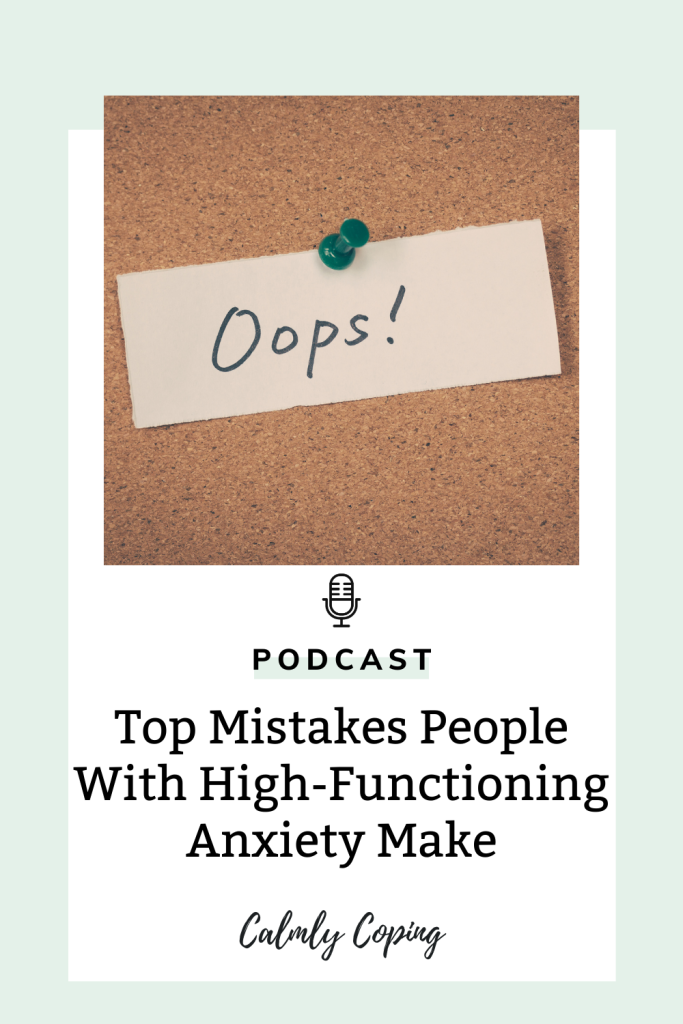
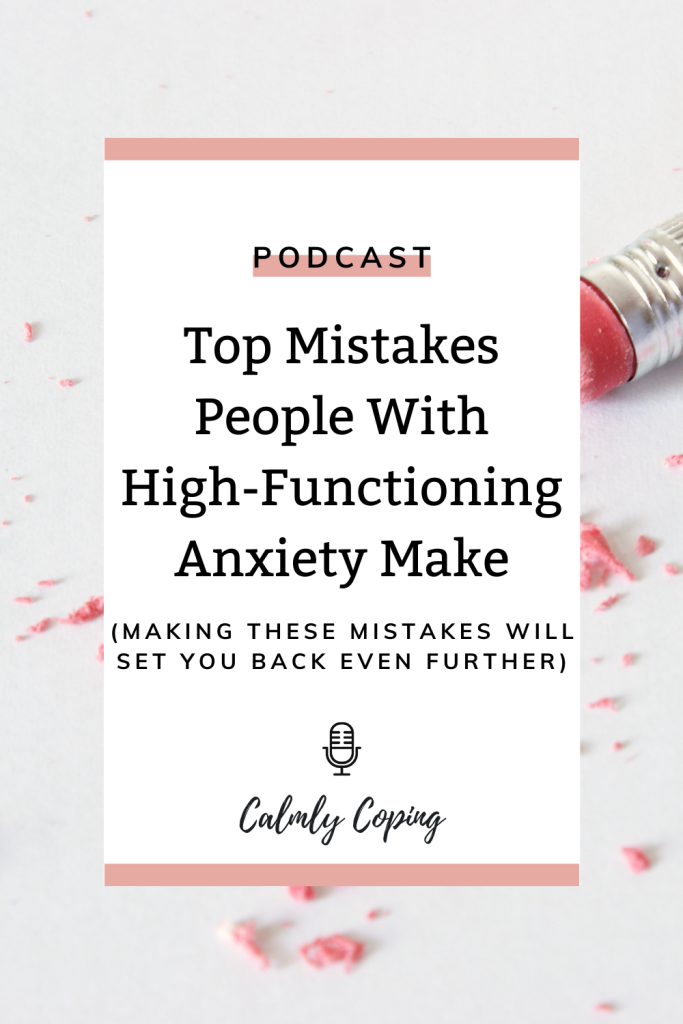

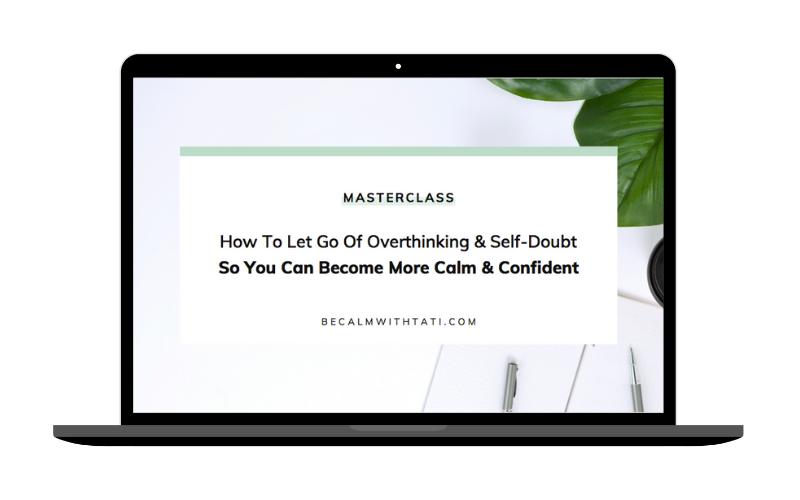




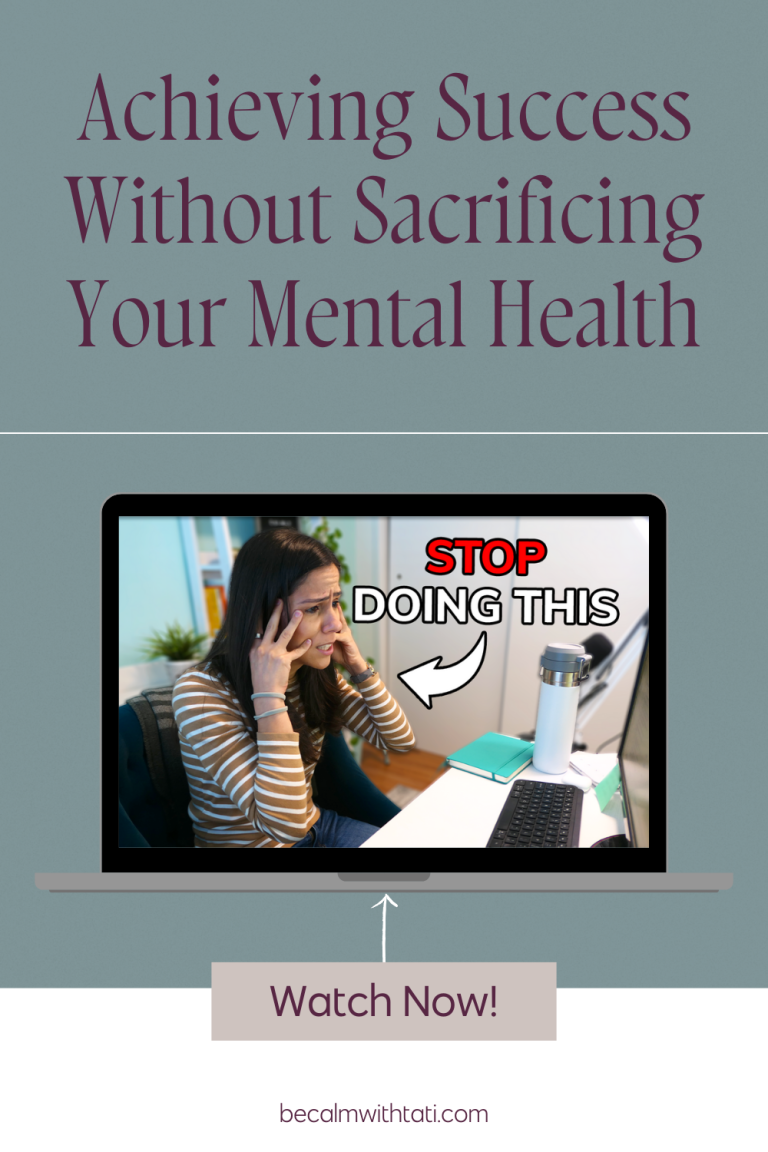
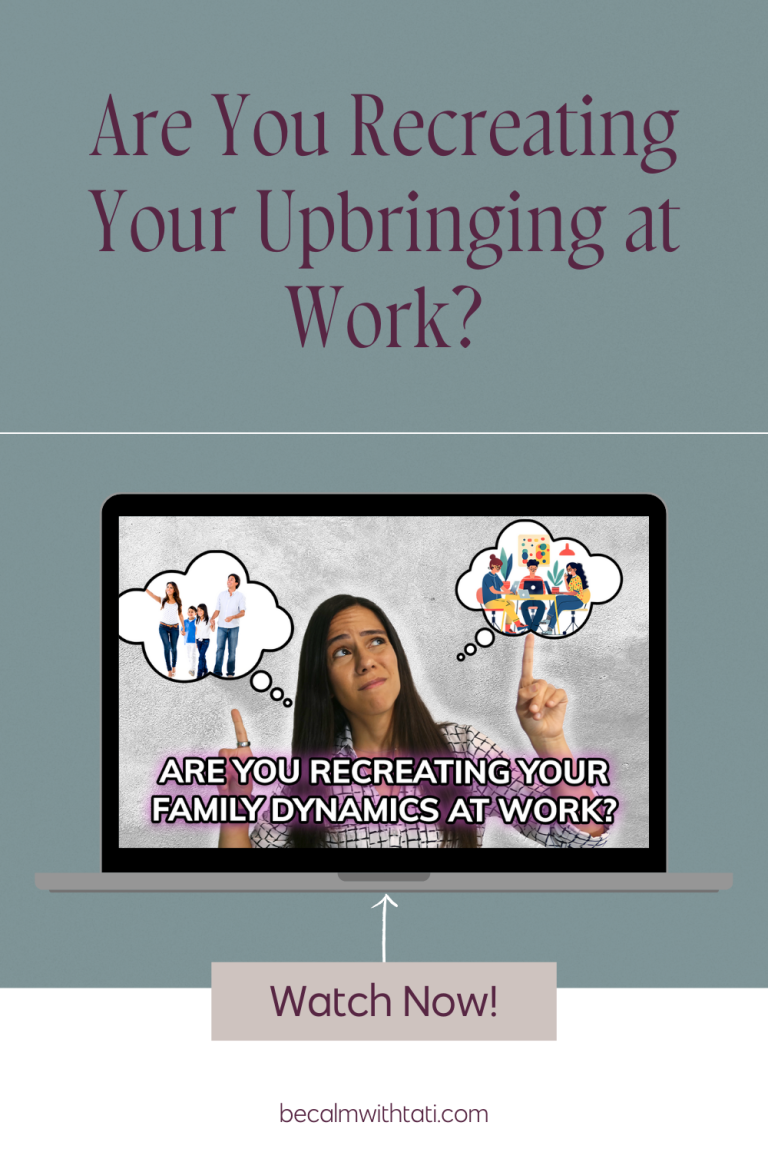
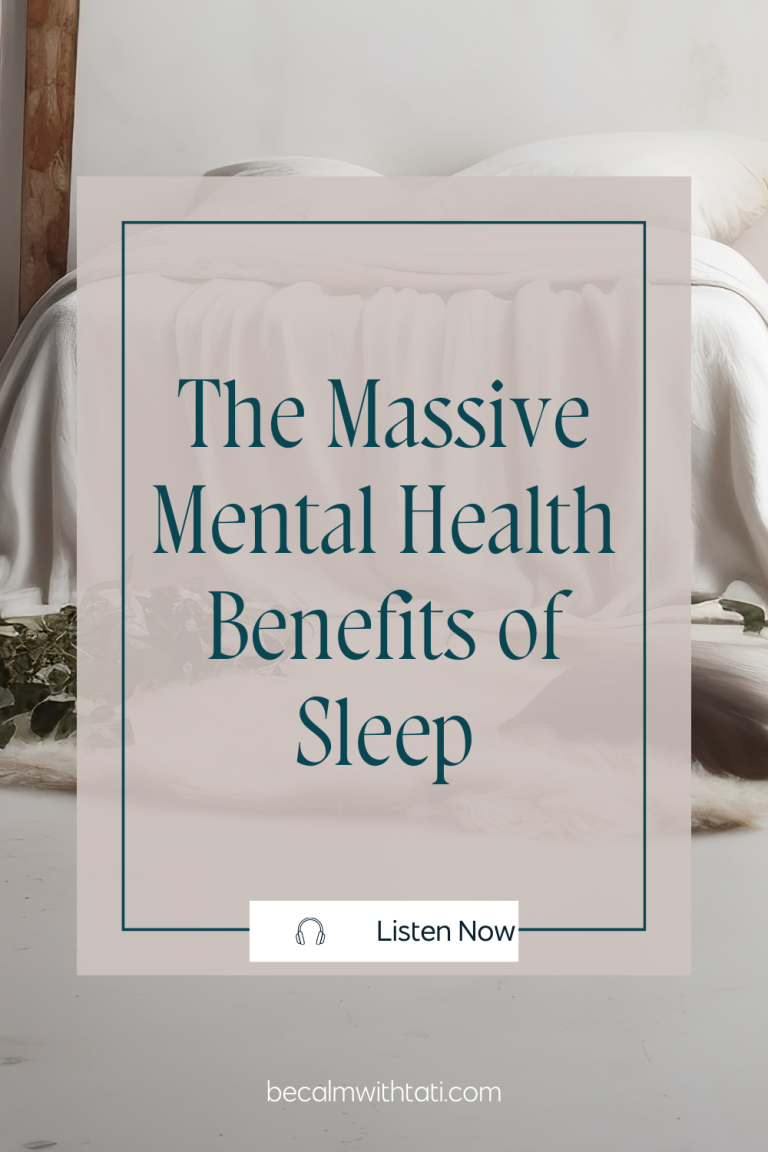






4 Comments
Like your site. My boss says I’m too hard on myself.so did the last 4 employers. How do I break the cycle of quitting every time I’m told that. This is job 5 and already 3 weeks in it’s the same words, different employer.
Thank you Allan! I think it can help to reflect upon why hearing that leads you to quit. Do you find there is any truth to their words? And if you find yourself taking it personally and feeling defeated, is it possible to create some distance from that? An easy way to do that is to think of what you would say to a friend in your situation, what advice would you give them? I hope that’s helpful and best of luck with your current job!
Agree with many oF your SCENARIOS. Thanks for the wonderful emails and InsightS. Other avenues of help can be CB medication i only tried one kind, WASN’T for me. I have a strong spiritual side, so prayer Helps Me a loT.
You’re welcome, Joan! Thank you for your comment! CBD can be helpful for some people, especially if you have trouble sleeping. Prayer and spirituality can absolutely be helpful, I’m glad that has been helpful for you!